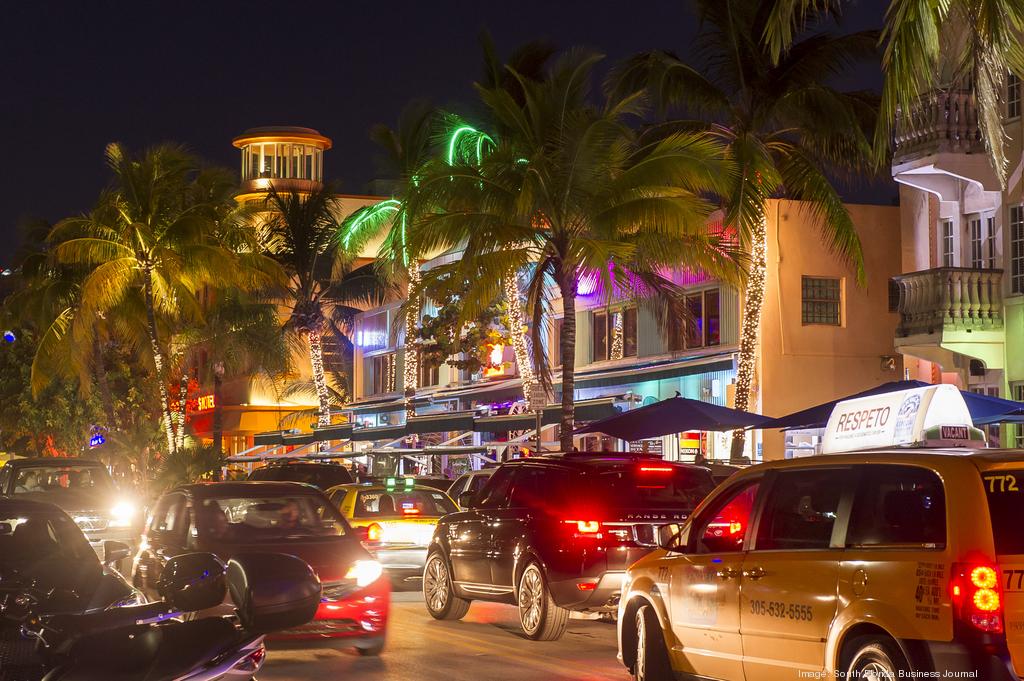
Alan DiPietro watches one of his two rams on his Massachusetts alpaca farm in the spring of 2023. After seeing portions of his land foreclosed on due to delinquent taxes and other obligations, DiPietro is suing to recoup what he says is more than $300,000 in excess value the government holds. (Courtesy of Alan DiPietro)
Alan DiPietro merely wanted more land for his alpacas.
It was 2014, and the Massachusetts engineer had been raising a herd of the camelid mammals for half a dozen years and selling their fleece. Looking for more space for his alpacas to roam, he bought 34 acres in the contiguous towns of Bolton and Stow in eastern Massachusetts.
His idea was simple: With only minimal changes, he could turn that undeveloped land into an alpaca farm.
After falling behind on tax payments and facing a fine for an alleged wetlands law violation, however, the local government foreclosed on some of that land to make good on DiPietro’s debt.
That was December 2021.
“It was clear that they were going to take everything, but I had gotten myself to the land court hearings about the tax title foreclosure, and they said, ‘There’s nothing you can do about it. You need to get an attorney.’ And I said, ‘Well, I don’t think the attorney’s going to tell me anything different,'” DiPietro told Law360 in a recent interview.
Since then, the U.S. Supreme Court handed down a landmark decision finding a Minnesota county could not keep the excess equity it reaped after foreclosing on a woman’s condominium in order to resolve a tax lien.
While Massachusetts law similarly allows the state to keep excess equity in cases where the property is worth more than the debt owed, DiPietro is now going to court to get back what he alleges is more than $300,000 in excess value the local government holds.
State laws vary considerably on the practice, which some have dubbed “home equity theft,” with many outlawing the practice but some allowing it. The practice is common in the states that allow it, and a recent study by the Pacific Legal Foundation, which represents DiPietro in the lawsuit he filed against the town of Bolton last January, found governments have taken more than $777 million in equity from homeowners.
In the wake of the U.S. Supreme Court’s ruling last year in Tyler v. Hennepin County, however, states that permit the practice have seen a wave of new litigation from homeowners looking to challenge it and efforts by lawmakers to reform it.
The Pacific Legal Foundation told Law360 it has discussed reforms with legislators in Alabama and Idaho, and bills are planned or expected in Alaska, California, Illinois, Minnesota, Montana, Nevada, New York, Oregon and Rhode Island.
“We do believe that there are ripple effects and ramifications from the decision. We think they could go in various directions,” said Buck Dougherty, senior counsel at Liberty Justice Center. “Most of the work going on right now is happening in the legislatures in various states. … Everyone’s trying to figure out how they’re going to navigate Tyler and what that’s going to look like.”
Meanwhile, lawsuits challenging the practice have been filed in more than half a dozen states.
“It’s amazing to me that, even after the Tyler decision, that anyone can question whether they’re operating unconstitutionally,” DiPietro said. “It seems crazy that it can be different in the different states.”
Home Equity ‘Theft’ Reform Was Long in the Making
Tax-delinquent homeowners face vastly different experiences in states that ban home equity “theft” versus states that allow it.
For homeowners in the majority of states that have outlawed the practice, the process is quite simple: When government takes property through tax foreclosure and then sells it, the difference between sale price and debt owed must by law be returned to the homeowner.
But in Massachusetts, Minnesota and other states, homeowners have routinely been told, as DiPietro was, that there’s nothing to be done. The local government is simply following state law, which allows for the practice.
In short, whether falling behind on taxes wipes out a homeowner’s life savings in equity and upends their lives has been largely dependent on where they choose to live. And in states where governments are allowed to hang onto excess equity, it’s been the very low-income owners who have been largely impacted.
“Seventy-five percent identify as Black or African American, and 75% identify as having household incomes of less than $30,000,” Dougherty said.
The more than a dozen states that allow for the practice have raked in millions of dollars in the last decade alone, according to a report from American Property Owners Alliance, which found governments took $780 million in equity from homeowners from 2014 to 2021 through tax foreclosures on 8,600 homes.
The Supreme Court case that’s now called the practice into question comes out of Minnesota, where Geraldine Tyler fell behind by $15,000 in taxes and other penalties on her Twin Cities condominium.
When the government took the property and later sold it for $40,000, it pocketed the $25,000 equity difference. When Tyler sued, both a federal district judge and the Eighth Circuit on appeal found Hennepin County had acted within its rights under Minnesota law. The U.S. Supreme Court took the case in 2022 and decided in favor of Tyler in May 2023.
The high court found Hennepin County keeping that $25,000 difference was a violation of the Fifth Amendment’s takings clause, which bars governments from taking private property without just compensation.
The U.S. Supreme Court did not weigh in on the plaintiff’s allegation of an Eighth Amendment violation — that Hennepin County’s actions rose to the level of an excessive fine.
Bay State Has Seen a Flurry of Post-Tyler Activity
Long before the Supreme Court took up Tyler, DiPietro had been scrambling.
He had gone through a divorce and was facing a $26,000 fine for allegedly violating the Massachusetts Wetlands Protection Act as well as Stow and Bolton’s bylaws when he installed fencing and made other land improvements too close to an area of wetlands. He had also fallen behind on a roughly $6,000 tax payment, which later started accruing interest at a clip of 16% per year.
All told, by 2021, when the town of Bolton foreclosed on the land DiPietro owned there, his debts to the town had grown to roughly $60,000. The land in Bolton is worth $370,000 for tax purposes, leaving an equity difference of roughly $310,000 that the local government is holding.
When DiPietro learned the local government was taking his property and would not be paying him the difference between market value and debt owed, he naturally sought a legal opinion.
At the time, home equity “theft” was not grabbing national headlines, and a lawyer told DiPietro there was simply nothing to be done — that Massachusetts allowed the practice and the local government was following the law.
“I got an attorney, and he said, ‘There’s nothing you can do about it. Either pay or they take it. That’s just the way it is,'” DiPietro said. “He never raised any Fifth Amendment issue. He never raised anything about the constitutionality of the statute. Nothing. So nobody was helping. Nobody was thinking that way.”
Shortly after the December 2021 foreclosure, DiPietro got in contact with the Pacific Legal Foundation, which agreed to represent him pro bono. DiPietro filed his lawsuit against Bolton in January 2023.
“It’s a blessing to me because I could not afford that,” DiPietro said. “I couldn’t afford … a top-rate attorney, much less one of national caliber.”
DiPietro’s suit is just one of several cases proceeding in Massachusetts, which has also seen recent bills in its House and Senate aimed at addressing the question of home equity theft.
On the litigation front, the City of Springfield and the Town of Tyngsborough are both involved in legal battles with homeowners who claim they’re being robbed of equity in their property.
The former case concerns Springfield homeowner Ashley Mills, who fell behind by more than $20,000 on taxes on her home yet had more than $200,000 in equity in the property. In the latter case, Tyngsborough is in a court battle over whether it can foreclose on the home of Paula Recco and keep the equity difference.
Meanwhile, the state’s attorney general issued guidance late last year clarifying that, under its reading of the Hennepin decision, an unconstitutional taking has occurred if equity is greater than debt when a private investor takes title. And Massachusetts saw at least six pieces of legislation introduced last year aimed at ending home equity “theft” in the state.
Those bills, which are still making their way through the Legislature, lay out various requirements and procedures for governments to sell tax-foreclosed properties and send the excess equity, after debts are settled, back to the former property owner.
“The bigger problem I see right now is that the Massachusetts Legislature knows this is unconstitutional. The attorney general knows it’s unconstitutional. The land court knows it’s unconstitutional. And yet nothing can be done until the Legislature acts,” DiPietro said. “The Legislature has had this in front of them for two or three sessions now, and they’ve been unable to write new legislation to resolve this.”
“They’re in a lot of trouble here, and they don’t want to pull the carpet out from under everything too quickly,” he added.
Other State Legislatures Are Moving Past Tyler
While movement in the Massachusetts Legislature has been slow, other states are moving more quickly.
A bill in Arizona that passed a vote in the state’s House of Representatives earlier this year and has now moved to the state’s Senate would create new requirements for distribution of proceeds in connection with sales of properties that governments have taken via tax foreclosure.
In Colorado, the state’s attorney general issued a formal opinion last year finding an unlawful taking will be considered to have occurred if equity is greater than debt when a private investor takes title. Meanwhile, a bill that passed a House vote earlier this year and is moving through the Senate would bring the state in line with the Tyler decision by requiring any excess equity to be returned to the former owner following a sale.
Meanwhile, a bill introduced in the Minnesota Senate last year just weeks before the high court’s decision in Tyler would end the practice of equity “theft” and bring the state in compliance with the ruling.
In Idaho, Gov. Bradley Little in February signed a bill that requires governments to sell a property within a year of acquiring it via tax foreclosure and requires return of surplus equity to the former owner.
Some states have already taken action. In Maine and Nebraska, bills passed last year ended the practice of home equity theft. In Montana, the passage of S.B. 253 in 2019 prohibited home equity “theft” in connection with residential, forest and agricultural properties. North Dakota ended it in 2021 with the passage of H.B. 1199.
“I hope there will be good legislation that comes from the [Tyler] case. I do think that the property tax laws and how local governments conduct [them], they do need to be reformed,” Dougherty said. “Some states are better than others. I do believe there will be significant reforms in more than one state.”
Meanwhile, in New York, lawmakers last year passed a bill that would have put a one-year moratorium on tax foreclosures in place while the state studied the issue of home equity theft, but Gov. Kathy Hochul vetoed the measure in December.
Wisconsin, meanwhile, eliminated home equity “theft” in 2022 with S.B. 829, but now a new bill is pending, supported by more than a dozen sponsors, that would provide rules and procedures for how tax sales are conducted and how equity is returned.
“Some states are in compliance with the mechanics, some states are probably in the middle, and some states are not so great,” Dougherty said. “The short answer is, I expect to see a lot from various state legislatures this year. States are going to figure it out legislatively.”
Litigation Continues in a Handful of States
When it comes to legal challenges over the practice, Michigan has been center stage of late, with a handful of cases having already been decided and others moving through the courts.
The Michigan Supreme Court ruled in 2020 that Oakland Could not keep the excess equity when it sold a rental property owned by Uri Rafaeli to make good on delinquent taxes. And in Hall v. Meisner, the Sixth Circuit found in 2022 that Michigan’s tax foreclosure process violated the Fifth Amendment’s takings clause.
“Although I believe that the problem may be limited to certain states and certain jurisdictions, those governmental agencies should immediately audit their past foreclosures to proactively make those impacted whole,” said Keith Poliakoff of Florida-based law firm Government Law Group. “If they fail to do so, I foresee numerous class action cases being filed based on the court’s unambiguous decision.”
The Great Lake State, however, continues to see litigation as plaintiffs hope to ride the momentum of the Tyler and Hall decisions.
In Schafer v. Kent County, the Michigan Supreme Court is set to decide the constitutionality of tax sales by Kent County in 2017 at prices higher than the debt owed by the plaintiffs.
A second case before the state’s high court, Hathon v. State, concerns the tax-foreclosed former property of Lynette Hathon, which allegedly had a market value of roughly $67,000 versus roughly $5,000 in debt owed. The state foreclosed on that property in 2018 and sold it at auction for roughly $28,000.
“I expect the Michigan Supreme Court to adopt the holding of Hall. Any cases concerning post-foreclosure auctions that generated proceeds likely should resolve soon after the Supreme Court rules,” said Mark McAlpine of McAlpine PC, who represented the plaintiffs in the Hall case. “Cases where a municipality exercised its right of first refusal prior to a sale are proving more difficult to resolve because the amount of damages can be debated.”
Oakland County, Michigan, filed an amicus brief in the Tyler case in support of Hennepin County.
“In no event should the court federalize state foreclosure proceedings by reshaping a sovereign state’s property rights,” the county argued in its brief.
In Minnesota, meanwhile, a judge is presiding over a pair of cases involving the tax foreclosures and subsequent sale of properties owned by plaintiffs Sharon Sporleder and Darrin Demars.
“It shocks me that there can be a clear constitutional problem and yet nobody’s willing to do anything or resolve it,” DiPietro said. “It just seems like the Supreme Court spoke, and all these courts should just fall in line right now and not be waiting for somebody else to make the decision.”
“I’ve been depressed. I get angry,” DiPietro added.
In Nebraska, the state’s highest court is currently weighing two cases over the issue, including one the U.S. Supreme Court had initially agreed to hear before ultimately remanding it in the weeks after the Tyler ruling.
In the second, the nation’s high court vacated an earlier decision by Nebraska justices that had gone against the homeowners. In that case, the U.S. Supreme Court ordered the Nebraska Supreme Court to revisit its conclusions in light of Tyler.
“I do expect to see litigation post-Tyler in the last half of 2024,” Dougherty said. “There are going to be huge ramifications in terms of property rights. The Eighth Amendment has been left open. I still think there is more to do on the Fifth Amendment.”
In New Jersey, a judge ruled last year that the U.S. Supreme Court’s decision in Tyler applied to foreclosure proceedings in the state. A second case, Johnson v. City of East Orange, is also moving forward over an $81,000 profit that plaintiff Lynette Johnson alleges the city improperly held onto after seizing her home and selling it.
Those stories, not unlike DiPietro’s, speak to vast differences that still exist between states that allow for home equity “theft” and those that don’t, even after the Tyler decision.
“I’m motivated to do something about this and actually make sure that people know about this and that the thing gets checked, gets changed, because I was angry. I was angry for years at these people in the town,” DiPietro said. “And their position is, ‘We’re just following the law, so don’t be mad at us.’ … That was the thing that always rubbed me the wrong way.”
–Additional reporting by Carolyn Muyskens, Danielle Ferguson, David Holtzman, Charlie Innis and Nate Beck. Graphics by Ben Jay. Editing by Philip Shea.
Have a story idea for Access to Justice? Reach us at accesstojustice@law360.com.



